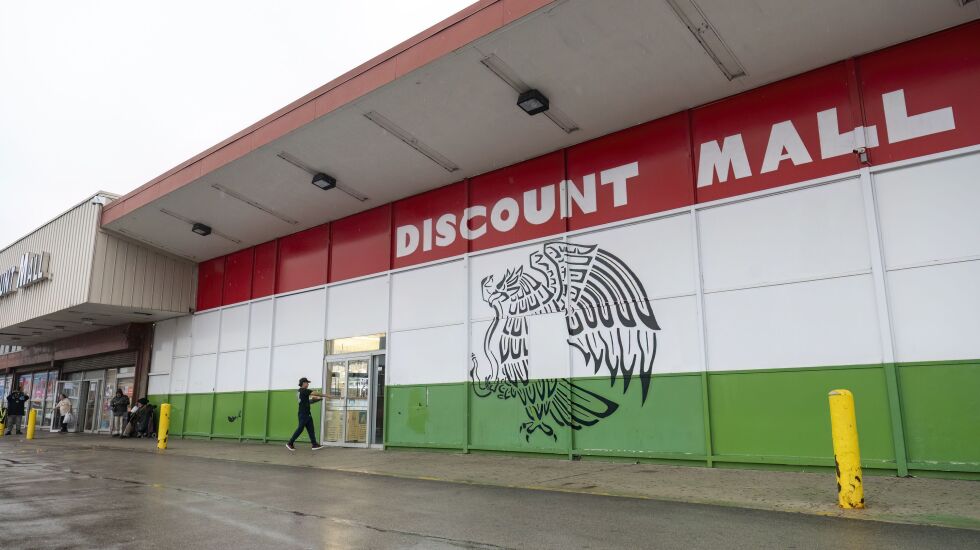
Time is running out for the vendors of Little Village’s Discount Mall, whose leases expire at the end of January with little to no clarity about who or what will replace them.
Development company Novak Construction purchased the mall in February 2020 for $17.5 million, threatening the livelihoods of the more than 200 vendors and potentially changing the fabric of one of Chicago’s largest Mexican American neighborhoods dramatically.
For 36 years, the Discount Mall has served as a business incubator for first-time entrepreneurs, especially Mexican immigrants. But when developer Novak Construction bought it, the purchase sparked rumors that a big box retailer could replace the mall and its small businesses. Novak Construction has a long client list of chain stores like Aldi, Costco, Kohl’s, REI and Walmart.
“We thought it might be time to add value to the mall there,” John Novak, president and founder of Novak Construction, told the Sun-Times shortly after the purchase. “I don’t know that it’s the best use of the property.”
His language is little more than the white-washing of a neighborhood. Developer Novak seems to be arguing about who does — and who doesn’t — add value to the mall vis a vis Little Village.
This area continues to be one of the most economically active in the neighborhood, after Chicago’s Michigan Avenue in terms of sales — $900 million vs. $1.8 billion respectively. So why the insistence on “adding value” to the area, and on the “best use of the property?” Are 200 Latino vendors not enough to add value to these stores, to their families, to the vibrant community of Little Village? And why is the property not in the best use, when as many as 20,000 cars will pass by the retail strip on a weekend?
For almost three years since the purchase, Little Village residents and a small group of Discount Mall’s vendors have actively organized to defend their livelihoods and fight for their community.
Since the late 1960s, the Discount Mall has been managed by Shai Lothan, a realtor, who sold Little Village Plaza to Novak.
“The type of shopping that sustained it for the last 30 years doesn’t really exist moving forward,” Lothan told the Sun-Times in 2020.
Contrary to the above pronouncements, the area continues to draw large crowds of commuters and Midwest visitors, and greatly contributes to the economy of the neighborhood, with $900 million annually earned by the 500 businesses along a 2-mile stretch of 26th Street.
Three years have passed since Lothan sold this property and Novak bought it, but most importantly, three years went by since both Lothan’s and Novak’s pronouncements were made without any public discussion about the embedded, racialized language used by each of them, about current Latino identities and culture.
The comments suggest that the only population who can “add value” to the mall are non-Latino, but white customers, who make possible the “best use of the property,” and help sustain businesses with “the [right] type of shopping” to sustain it.
Since Mayor Lori Lightfoot took office, her administration has been seemingly working to build a “progressive” and “inclusive” Chicago, and to protect residential and commercial displacement.
But much remains the same: In Chicago, race and class stake out and continue to shape developers and government officials’ realities and projects.
As Lightfoot prepares her campaign for reelection against a host of challengers for mayor in the February 2023 election, the Latino population, in Little Village and other predominantly Latino neighborhoods, is worried about their main sources of income as well as the displacement of their community, neighbors and businesses — simply because they’re not adding enough “value” to the city.
Surely we can think bigger and better than that.
Carolina Sternberg is an associate professor and chair of Latin American and Latino Studies at DePaul University and a Public Voices Fellow with the OpEd Project.
The Sun-Times welcomes letters to the editor and op-eds. See our guidelines.
The views and opinions expressed by contributors are their own and do not necessarily reflect those of the Chicago Sun-Times or any of its affiliates.







